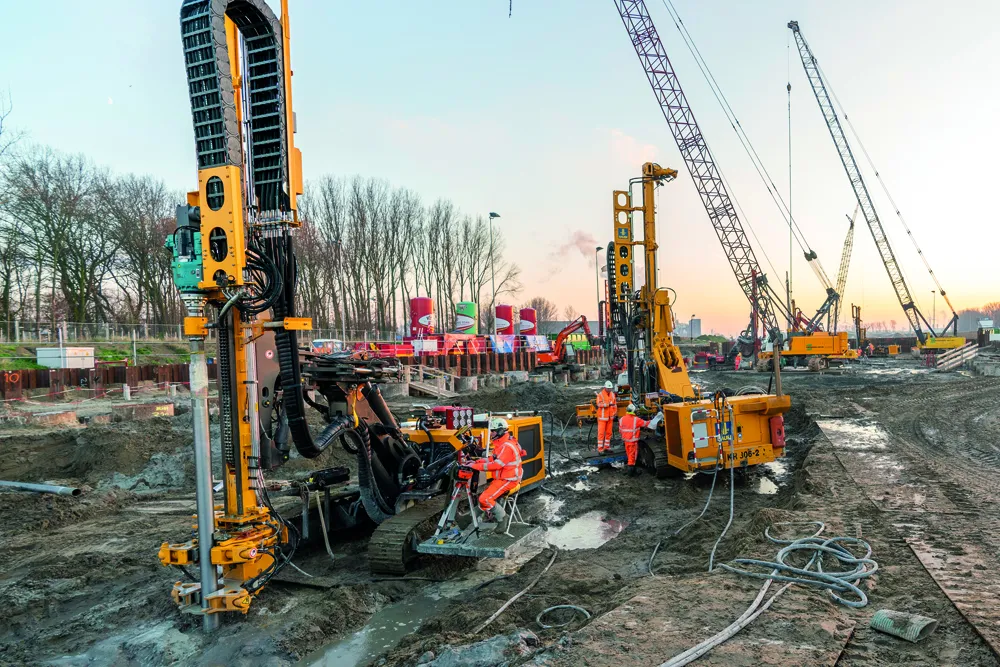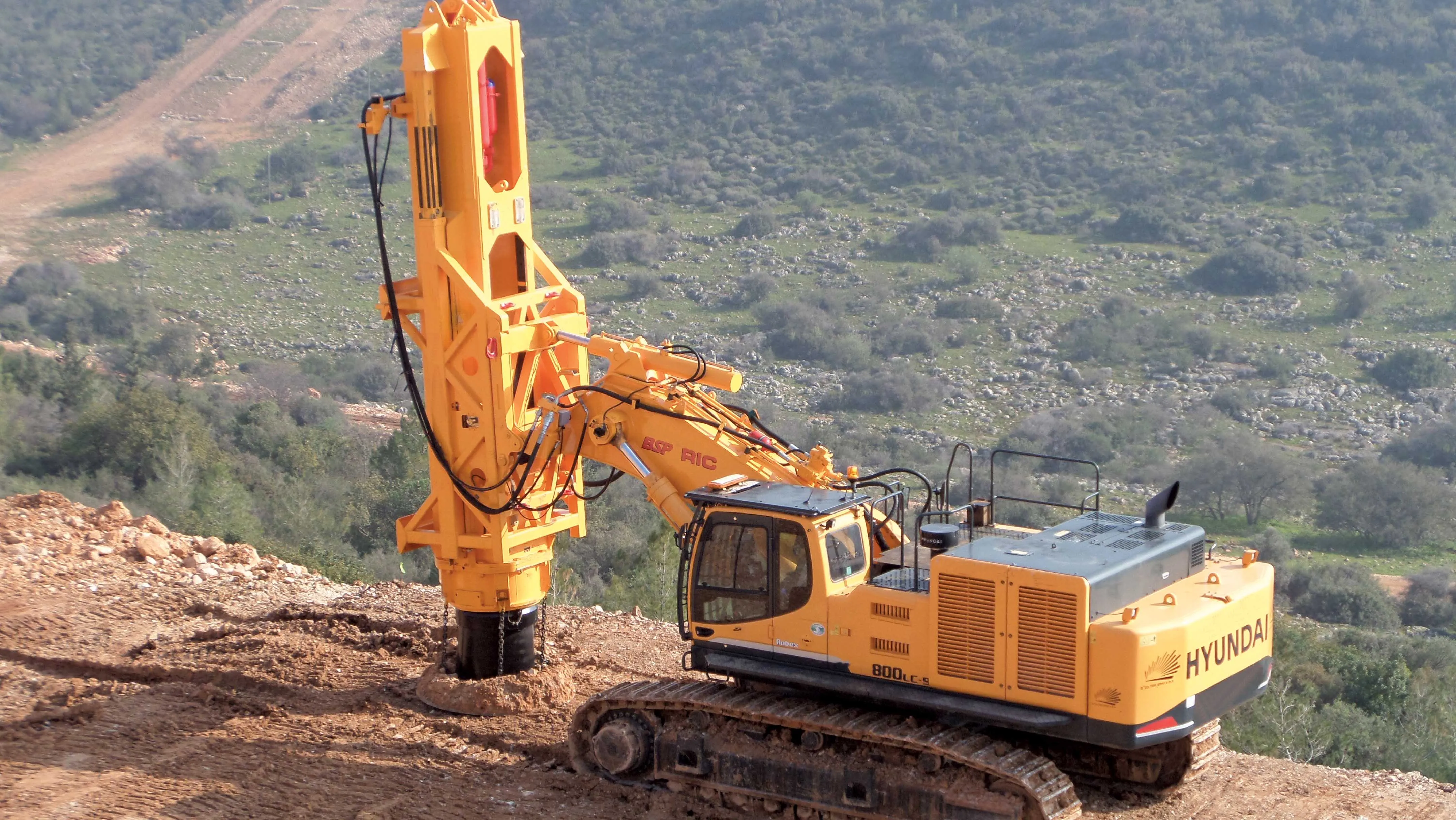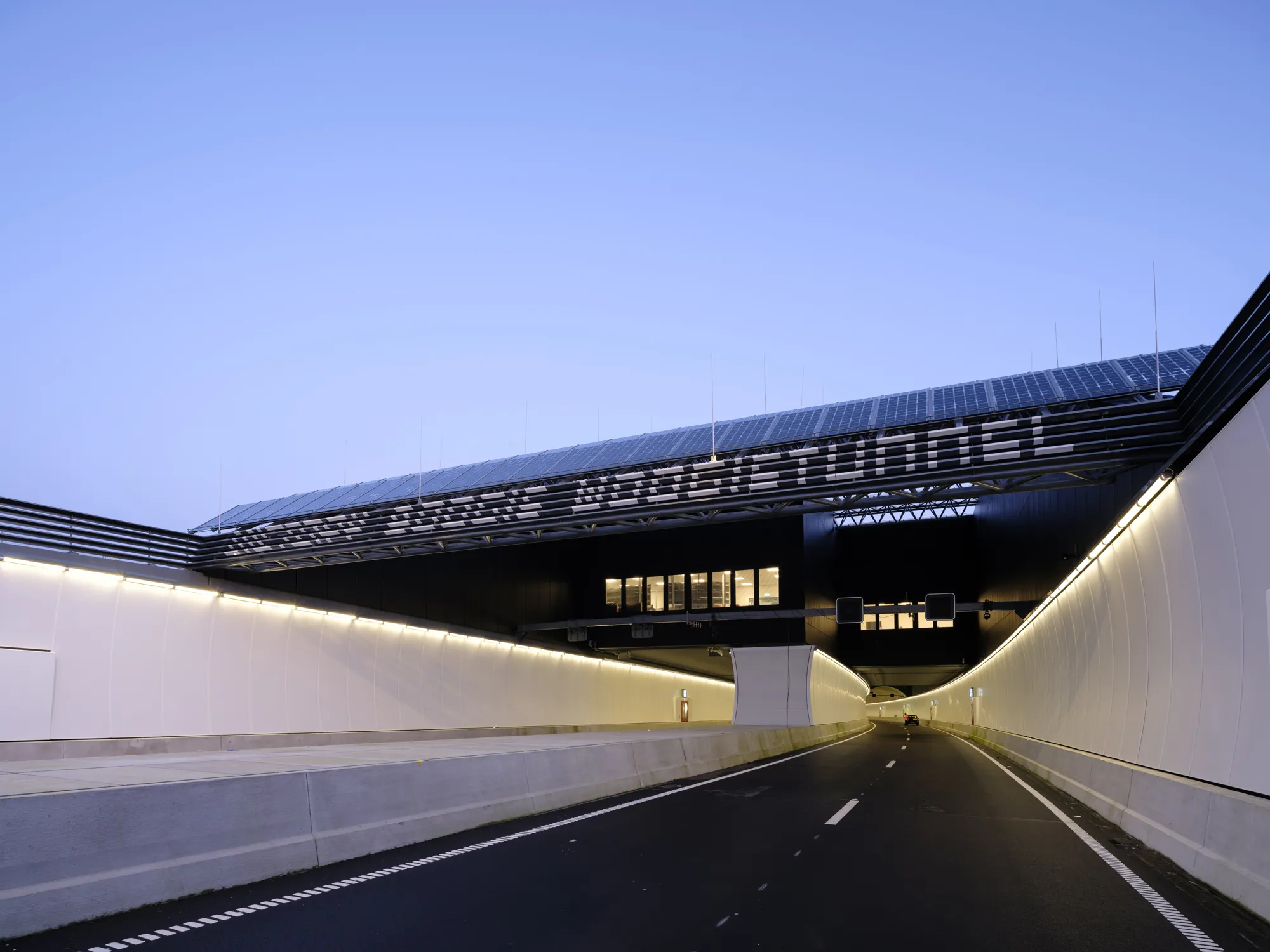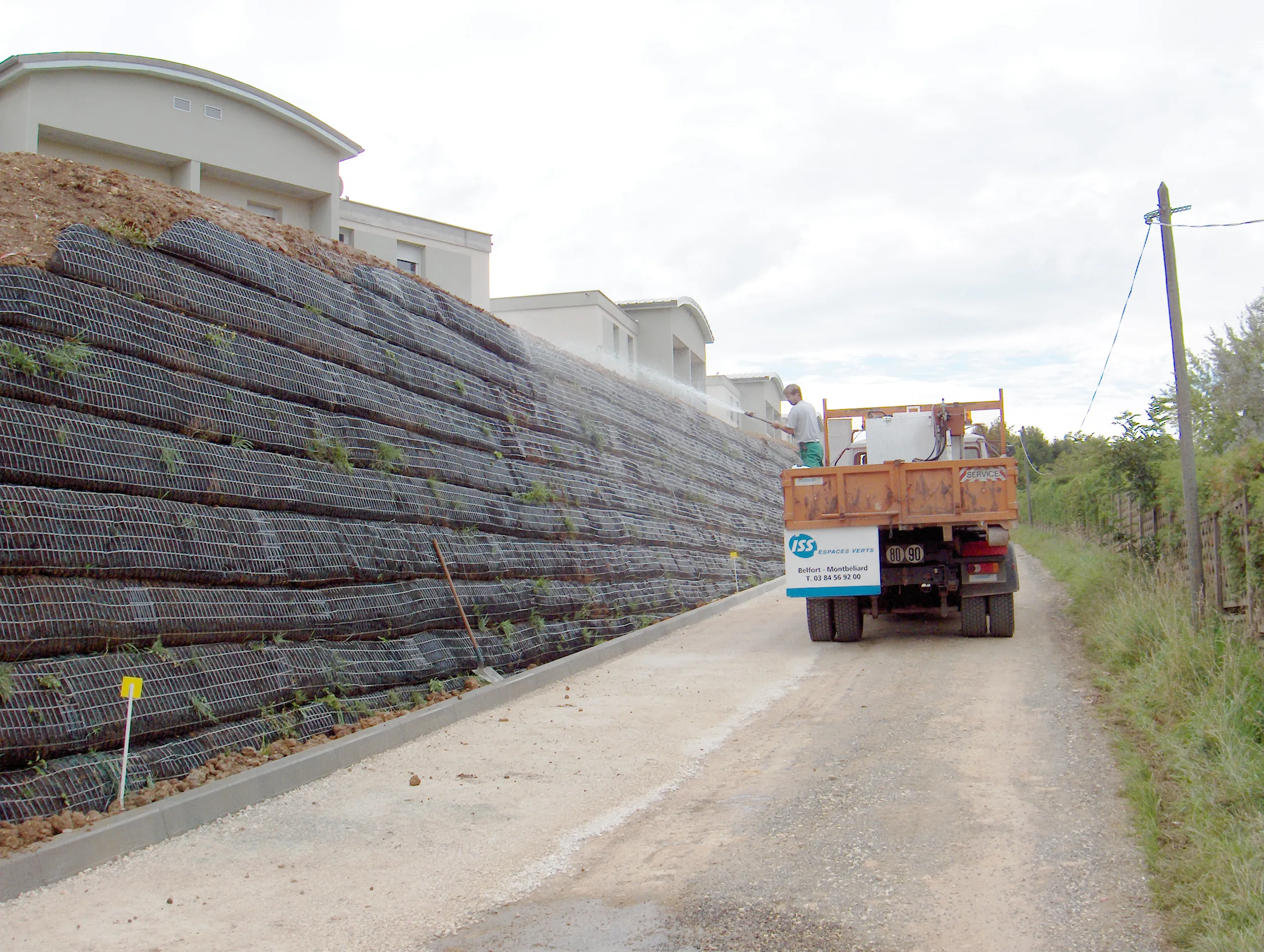
The work by BAUER Funderingstechniek - the Dutch subsidiary of German parent firm BAUER Spezialtiefbau - is for the Blankeburgverbinding (Blankenburg Connection) tunnel project west of the city between the A15 and A20 highways.
Rotterdam, with a population of around 650,000, is the second largest city in the Netherlands and Europe's largest seaport, making it an important freight transport hub. The Blankenburg Connection will relieve truck and general traffic congestion.
BAUER has been delivering GEWI material to the site since July 2019 and by May is due to have installed 4,500 piles. But preliminary pile load tests were conducted in 2018 to investigate the primary friction properties of the three soil strata at the site. Soft clay, followed by firm clay and medium-dense to dense layers of sand were detected down to a depth of up to 20m.
The design of the GEWI piles for the tunnel ramps was adjusted based on the results of the pile load tests. Installation of the pile foundation for the southern ramp of the future 30m-deep Maas Delta Tunnel began last summer.
"In total, 11 teams with 11 KLEMM KR 806 rigs are currently being used in the joint project with our partner De Vries Titan," said Maarten Daalmeijer, project manager at BAUER Funderingstechniek. "This way we are sure to keep to the tight schedule.”
BAUER is installing the deepest GEWI piles in the Netherlands to date. Penetration of 64m below the NAP (Normaal Amserdams Peil - Amsterdam Ordnance Datum) - a height reference point for the Amsterdam water level.








